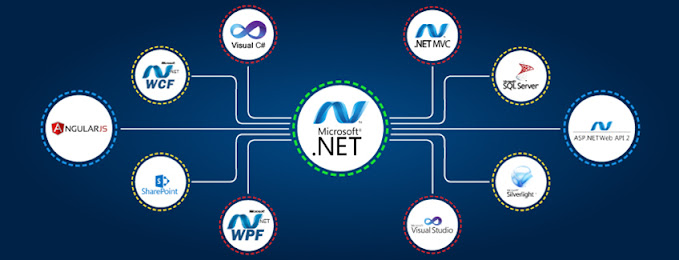How to Choose the Right .NET Development Services in 2025?
In today’s fast-evolving tech arena, where agility and scalability define business success, making the right technology decision can be your greatest competitive edge—or your biggest setback. One such critical decision is choosing the right .NET Development Services. For enterprises seeking to build robust, scalable, and secure applications, the .NET framework continues to be a powerhouse.
As 2025 unfolds with demands for cloud-native applications, API-first architectures, and seamless cross-platform compatibility, aligning with a trusted dot net development company becomes more than just outsourcing—it’s a strategic move. But how do you sift through the noise and find the right partner?
In this guide, we’ll show you the decisive factors that help you select a high-performing .NET Development Services provider tailored to your vision, goals, and growth curve.
Why .NET Still Dominates in 2025
The .NET framework has evolved tremendously over the years—from a Windows-only platform to a cross-platform, open-source ecosystem capable of handling everything from microservices to enterprise-grade systems. Thanks to .NET 8 and seamless integration with Azure, it now powers modern cloud applications, IoT systems, and even AI-driven platforms.
The real power of .NET in 2025 lies in:
-
Blazing performance with Just-In-Time (JIT) and Ahead-of-Time (AOT) compilation
-
Rich language support: C#, F#, VB.NET
-
Built-in security layers for authentication, authorization, and data protection
-
Cross-platform development using .NET MAUI and Blazor
-
Tight integration with Microsoft’s cloud infrastructure
But even with all these perks, the framework is only as good as the developers behind it. That’s where a high-quality dot net development company steps in.
The Rise of Specialized .NET Development Services
No two projects are alike. What a fintech startup needs from .NET will drastically differ from what a healthcare platform or logistics enterprise requires. Hence, specialized .NET Development Services have become the go-to solution—offering domain-specific architecture, compliance-ready coding, and optimized performance.
Startups, scale-ups, and enterprises now look for vendors that don’t just “code in .NET,” but understand business workflows, offer strategic consulting, and deliver future-ready architectures.
Key Considerations While Choosing .NET Development Services
1. Industry Experience and Domain Expertise
Not all vendors are created equal. You want a dot net development company that speaks the language of your business. Ask:
-
Have they worked in your industry (e.g., finance, eCommerce, logistics)?
-
Do they understand compliance requirements (HIPAA, GDPR)?
-
Can they handle complex integrations (ERP, CRM, APIs)?
2. Modern .NET Tech Stack Usage
Your provider should be fluent in the full .NET tech stack:
-
ASP.NET Core
-
Entity Framework Core
-
Blazor for interactive UIs
-
SignalR for real-time data
-
Azure DevOps for CI/CD pipelines
-
.NET MAUI for cross-platform apps
They should also be skilled in setting up containerized deployments with Docker or Kubernetes.
3. Performance Optimization and Scalability
Your product might have a few hundred users today, but what about tomorrow? Look for teams that:
-
Build scalable microservices-based architectures
-
Use async programming patterns to enhance throughput
-
Optimize database queries using EF Core
-
Apply caching, load balancing, and distributed computing techniques
4. Security and Code Quality Standards
Cybersecurity threats are evolving rapidly. Make sure your partner follows:
-
Secure coding standards (OWASP top 10)
-
Role-based access control (RBAC)
-
Regular code audits and vulnerability assessments
-
Encrypted communications (TLS, HTTPS, JWT)
5. Transparent Communication and Agile Delivery
Your ideal dot net development company should operate transparently, with:
-
Weekly sprint reviews
-
Continuous deployment strategies
-
Dedicated project managers
-
Tools like Jira, Slack, and Git for collaboration
Agility is the name of the game—your provider should be quick to adapt as business needs shift.
Common Red Flags to Watch Out For
Avoid vendors who:
-
Promise “everything” with a fixed price and unrealistic deadlines
-
Have no portfolio or client references
-
Lack technical blogs or thought leadership (shows knowledge gaps)
-
Use outdated versions of the .NET framework
-
Don’t invest in automated testing or CI/CD pipelines
Your partner should be forward-thinking, not playing catch-up.
Why .NET Is a Smart Choice for 2025 Projects
.NET has always been known for enterprise-grade reliability. But now, with .NET 8 and enhanced support for cloud-native architectures, it’s also becoming a top contender for startups and mid-sized businesses. If you’re looking to build:
-
SaaS platforms
-
AI-powered analytics tools
-
Healthcare or fintech portals
-
Cross-platform desktop + mobile apps
then .NET Development Services offer the flexibility, security, and power to bring your ideas to life.
Questions to Ask Before You Hire a .NET Development Company
-
What is your experience with .NET 8 and Blazor?
-
How do you manage scalability and performance?
-
Do you offer post-deployment support?
-
What testing frameworks and DevOps tools do you use?
-
Can you share references or case studies from past .NET projects?
These questions will help you identify not just technical capabilities but cultural fit as well.
Conclusion: Your .NET Partner Is Your Growth Catalyst
Choosing the right .NET Development Services partner is not just about coding. It’s about building a lasting foundation for innovation. Whether you're modernizing legacy systems, launching new apps, or scaling an MVP—your chosen dot net development company will determine the velocity and reliability of your growth.
In 2025, where speed, scale, and security are non-negotiable, .NET stands tall as a mature, versatile platform. But it's the expertise behind the code that makes all the difference.


.png)
Comments
Post a Comment